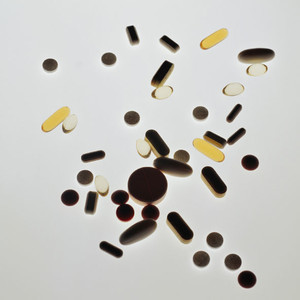The wide availability of generics across Sri Lanka, in both private and semi-government community pharmacies, is increasing the availability and affordability of essential medicines for non-communicable diseases (NCDs) in the country.
Appropriate generics pricing improves medicines availability in Sri Lanka
Generics/Research
|
Posted 05/09/2014
 0
Post your comment
0
Post your comment

Essential medicines, which satisfy the healthcare needs of the majority of a population, can only save lives, reduce suffering and improve health if they are of good quality, safe, available and affordable. Panthihage Ruvini Dabare and colleagues at the University of Sri Jayewardenepura, Sri Lanka, surveyed the availability, price and affordability of essential medicines prescribed to treat NCDs in Sri Lanka [1].
In any given country, essential medicines are selected on the basis of disease prevalence, evidence on efficacy, safety and comparative cost-effectiveness. The availability and affordability of medicines are preconditions for access, defined as having medicines continuously available and affordable at outlets that are within one hour’s walk of every patient’s home [2].
Although there have been previous studies on the availability and affordability of medicines in Sri Lanka, these have been conducted in specific areas. The authors recognized the need for a national survey to determine these factors across the whole country.
They looked at the nationwide availability of selected essential medicines for the treatment of NCDs in public healthcare facilities, and the availability, price and affordability of those medicines in the private sector. All state hospitals have pharmacies off site (called outdoor pharmacies) that provide medicines free of charge.
The NCD burden is increasing in Sri Lanka. Deaths related to circulatory diseases have increased from 3% to 24% in the last 50 years and there is a rise in the number of patients hospitalized for NCDs such as diabetes, hypertensive disease and ischaemic heart disease. The leading causes of deaths in public hospitals in Sri Lanka are cerebrovascular disease, acute myocardial infarction and heart failure. Although cancer is an NCD, cancer medicines were not surveyed as patients are managed in selected hospitals in the country.
The following commonly treated NCDs were included in the survey: cardiovascular diseases, diabetes, asthma and chronic obstructive pulmonary diseases (COPD), peptic ulcers, osteoporosis, diseases of the thyroid, epilepsy, Parkinson’s disease, psychiatric disorders, joint related disorders (osteoarthritis, rheumatoid arthritis) and glaucoma.
Based on the salary of the lowest paid unskilled government worker in Sri Lanka, the authors found that more than 67% of medicines required less than a single day’s wages to purchase a month’s supply. Less than ten days’ wages was required to buy a month’s supply of 14 of the medicines surveyed.
The difference in price between originator brands and the lowest price generics was marked, with originators being over five times and in some cases up to 100 times more expensive. At the same time, the availability of originator brands surveyed was very low. Around two thirds of the registered originator brands were not available where they were surveyed, while many generics were available for particular medicines.
The median prices of surveyed generics in Sri Lanka were compared with their International Reference Prices (IRPs). In many cases the Sri Lankan price was lower than the IRP, suggesting that generics pricing was appropriate in the outlets studied – in private and semi-government pharmacies.
Most of the medicines surveyed in this study were found to be affordable to Sri Lanka’s lowest income earners. There were many generic brands and generics available for most of the medicines in private and semi-government community pharmacies, which in turn has led to increased availability and affordability. The authors call for existing policies and procedures to be strengthened so that demand can be forecast, allowing for timely procurement to ensure a steady and uninterrupted medicines supply to public healthcare facilities.
Related Article
Generics contribution to availability of essential medicines
Access to medicines in Shaanxi province China
References
1. Dabare PR, Wanigatunge CA, Beneragama BH. A national survey on availability, price and affordability of selected essential medicines for non communicable diseases in Sri Lanka. BMC Public Health. 2014;14:817.
2. United Nations Publication: Indicators for Monitoring the Millennium Development Goals. United Nations Development Group; 2003.
Permission granted to reproduce for personal and non-commercial use only. All other reproduction, copy or reprinting of all or part of any ‘Content’ found on this website is strictly prohibited without the prior consent of the publisher. Contact the publisher to obtain permission before redistributing.
Copyright – Unless otherwise stated all contents of this website are © 2014 Pro PharmaCommunications International. All Rights Reserved.
Most viewed articles
The best selling biotechnology drugs of 2008: the next biosimilars targets
Global biosimilars guideline development – EGA’s perspective
Related content
Japan’s drug shortage crisis: challenges and policy solutions
Saudi FDA drug approvals and GMP inspections: trend analysis
Generic medications in the Lebanese community: understanding and public perception
Community pharmacists’ understanding of generic and biosimilar drugs: Lebanon case study
Generic medications in the Lebanese community: understanding and public perception

Generics/Research Posted 23/01/2024
Community pharmacists’ understanding of generic and biosimilar drugs: Lebanon case study

Generics/Research Posted 08/09/2023
The best selling biotechnology drugs of 2008: the next biosimilars targets








Post your comment